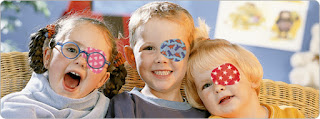Treatment of amblyopia during childhood can have both positive and negative impacts in later life. The treatment of amblyopia could influence Vision-related Quality of Life in adults and children, particularly social relationships and emotions. For example, children with a history of occlusion were 35% to 37% more likely than children without visual defects to have suffered from verbal or physical bullying at school. Many parents associate occlusion treatment with a decrease in children’s self-confidence because of poor vision during occlusion and report greater distress and more conflict at home.
Koklanis et al. conducted a study in Australia on the psychosocial impact of amblyopia and its treatment from both the children (aged 3 to 15 years) and parents’ perspectives. The investigators performed a semi-structured interview with both children with amblyopia and their parents. In addition, parents were asked to complete a psychological inventory, the Behaviour Assessment System for Children. The study showed that dealing with stigma and the perceptions and responses of peers were found to be of central significance in amblyopia therapy and that stigma and the perceptions of peers had adverse consequences for some children’s identity and psychosocial well being.

No comments:
Post a Comment